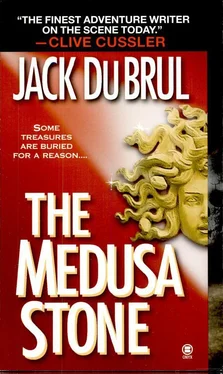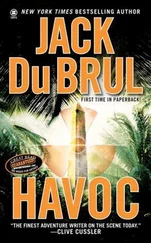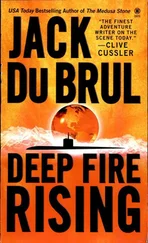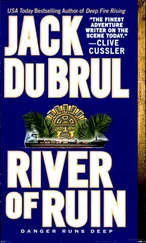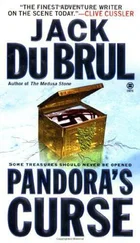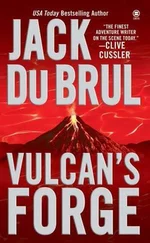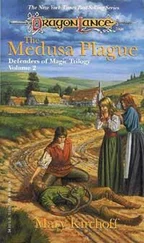Jack Du Brul - The Medusa Stone
Здесь есть возможность читать онлайн «Jack Du Brul - The Medusa Stone» весь текст электронной книги совершенно бесплатно (целиком полную версию без сокращений). В некоторых случаях можно слушать аудио, скачать через торрент в формате fb2 и присутствует краткое содержание. Жанр: Триллер, на английском языке. Описание произведения, (предисловие) а так же отзывы посетителей доступны на портале библиотеки ЛибКат.
- Название:The Medusa Stone
- Автор:
- Жанр:
- Год:неизвестен
- ISBN:нет данных
- Рейтинг книги:3 / 5. Голосов: 1
-
Избранное:Добавить в избранное
- Отзывы:
-
Ваша оценка:
- 60
- 1
- 2
- 3
- 4
- 5
The Medusa Stone: краткое содержание, описание и аннотация
Предлагаем к чтению аннотацию, описание, краткое содержание или предисловие (зависит от того, что написал сам автор книги «The Medusa Stone»). Если вы не нашли необходимую информацию о книге — напишите в комментариях, мы постараемся отыскать её.
The Medusa Stone — читать онлайн бесплатно полную книгу (весь текст) целиком
Ниже представлен текст книги, разбитый по страницам. Система сохранения места последней прочитанной страницы, позволяет с удобством читать онлайн бесплатно книгу «The Medusa Stone», без необходимости каждый раз заново искать на чём Вы остановились. Поставьте закладку, и сможете в любой момент перейти на страницу, на которой закончили чтение.
Интервал:
Закладка:
“They never got close enough to see I was alone.”
“Great,” Mercer said with relief. “Thanks, Paul. I owe you big for this.”
“If it was for anyone other than Harry, I’d agree. But for him, it’s a wash.” Tiny kept his eyes on the road as he spoke. “Is Henna going to help?”
“Yeah, he’s in. They’re going over Harry’s place tomorrow. He’s going to call me at your bar and tell me if they turned up anything.”
“You’re still going to go to Africa, aren’t you?”
“I’m covering my bets, so yeah, I’m going.”
Monastery of Debre Amlak, Northern Eritrea
Morning prayers were long over, but the sun was still an hour from rising. The moon hung shining and fat, three-quarters full and bright enough to wash away the glow from Venus, the morning star. April was rainy season, yet the downpours had not come to the lowlands; the desert stretching into the interior of Africa had not seen a drop. However, the air was chilled with humidity, forcing the twelve monks and their abbot inhabiting the ancient monastery to wear heavy woolen mantles. With their legs bare and their feet in leather sandals, they shivered in the pre-dawn light as they prepared to break evening fast at the long table in the dining hall.
Situated along a razor crest of mountains that cleaved across the desert floor and afforded the monastery some reprieve from the worst of the summer heat, the retreat had a commanding view of the surrounding flats, as if its original builders had an eye for defensive positions rather than the sequestration of its inhabitants. Constructed in the twelfth century as an outpost of Christianity and expanded once during the 1600s, the abbey had enjoyed continuous occupancy until the latter part of the twentieth century, when the intense fighting between Eritrean freedom fighters and the occupying Ethiopian army forced the brothers to evacuate to another monastery in Ethiopia. Contrary to the “scorched earth” policy practiced by the Ethiopians at the close of the conflict, when they returned, they discovered that their abbey had not been molested save for a few stray bullet holes that marred its stone facade.
The monks sat at a wide plank table built five hundred years earlier by another, nameless brother, the chairs added over the centuries by different hands, both skilled and unskilled. It was a point of pride among those assembled to sit at the most uncomfortable and poorly constructed chair as possible-that bit of added discomfort testified, in a small way, to their fealty.
Their meal was simple, a spongy unleavened bread which they tore into small pieces to dip into the gray/green stew of peas, lentils, and peppers. They all drank black coffee, brewed from beans from their own bushes.
Breakfast was the only time the monks allowed themselves full discourse. All other conversation was restricted to prayers and singing. While not exactly informal, the breakfast meetings contained an air of relaxation not normally associated with men who made their devotion by the selfless sacrifice of monastic life. The ages of the men ran from the mid-teens of the three novice boys to nearly a hundred. The abbot, however, was not the eldest of the group, as was normal practice.
When the monastery was abandoned in 1983, the head abbot at the time had vowed he would never return, feeling shame in breaking the chain of occupation stretching far into the past. He died while they were still in exile, and many of the elder monks refused to return home in honor of their friend. Those that did come back made it clear that they would not take the reins of leadership in order to show deference to their fallen leader. Thus it fell to a younger man, an Ethiopian by birth, who had been part of the monastery since he was a novice.
Not knowing his own age but guessing it to be around sixty, Brother Ephraim (he had used the name for so long he scarcely remembered the one given to him by his parents) sat at the head of the table in the oldest, most dilapidated chair, the pewter plate before him mopped clean with the last of the bread. Small bits of food clung to his mostly silver beard. He spoke Latin, conversationally.
“Did our little friend return last night to harass the chickens? I heard a disturbance about an hour after midnight services. I thought maybe our jackal was back.”
“Alas no, brother. He has not returned, and I fear he may not,” one of the monks responded sadly, for in this dead land the return of even a single scavenger was seen as a renewing of life. “I saw his body across the valley yesterday. He had been shot.”
“God works to return what man has plundered from the earth by the war, and yet we continue to defy Him. I fear the day when He no longer replenishes that which we use up.” Brother Ephraim shook his large head with disappointment.
“That day is closer than you think,” the eldest of the monastic family muttered, a monk who had lived here for almost nine decades. “Judgment is coming.”
“Yes, Brother Dawit. His Day of Atonement is never far away,” Ephraim agreed patiently, for the elder monk had lost much of his mind as well as his eyesight. Dawit’s body was paper thin, his skin so parched that even candlelight could silhouette the delicate bones in his hands. In recent weeks his health had deteriorated alarmingly, and his thoughts had become scattered and disjointed.
“Not His day, brother, but another’s,” Dawit cawed. “Before we face God’s judgment, we will be questioned by men, and our answers will offend them most grievously. They will take up arms against us and all others who defy them. They know of a secret meant to be kept forever. The sins of our fathers are about to be revealed.”
There was a silence for a moment, and Ephraim was about to reassure the aged monk when Dawit sat straighter in his chair, his milky white eyes glaring sightlessly. “My brothers, the time has come for us to accept the shame of the distant past. The deaths of the children will be exposed. The Evil, brought to earth from hell itself, will kill again. Many will die in order that many more will be saved. You know nothing of this, Brother Ephraim, for our chain was broken and secrets were not passed to you by your predecessor. But there are truths within these walls that will pit nation against nation if they are divulged. Judge wisely, brother. The fate of the Lord’s battle with Satan rests upon your shoulders. Why do you think none of us wanted your chair when we returned?”
Dawit craned his fleshless neck around the room, his blind eyes falling unerringly on those older members of the brotherhood who, like himself, had refused to take the leadership of the house. “We did not do it to honor the former abbot. We all despised him, though none would make that admission. What he knew made him a hate-filled, bitter man, one concerned more with the decisions of this world than contemplation of man’s place in the next. Such was the nature of his position, of yours, young brother.”
Ephraim had gone a little pale under his natural dusky complexion. He was stunned by the coherence of Dawit’s speech, even if he didn’t understand the content. “And what were these truths, brother? Who will question us?”
Dawit’s body shook with the effort of his outburst, his narrow chest heaving under the dark cloak. In the eyes of the other clerics, the strain of speaking seemed to age him further. “I do not know. I do not wish to know, and if you had a choice, neither would you. But God’s will be done, and it is up to Him to reveal what that is.”
Later that day, as the sun slid silently past its zenith, Brother Ephraim went out walking. The heat was ferocious, but he still wore his woolen vestments. It was dangerous where he wandered. After the war, a team sponsored by the United Nations had painstakingly cleared the hundreds of land mines planted in the area around the monastery and the fields the monks used for pasturing their goats. Nearly twelve square miles had been decontaminated, but beyond the little red markers, the land was fouled with can-sized bombs. Ephraim knew he’d stepped over the boundary, but his thoughts were too deep to pay that fact particular attention.
Читать дальшеИнтервал:
Закладка:
Похожие книги на «The Medusa Stone»
Представляем Вашему вниманию похожие книги на «The Medusa Stone» списком для выбора. Мы отобрали схожую по названию и смыслу литературу в надежде предоставить читателям больше вариантов отыскать новые, интересные, ещё непрочитанные произведения.
Обсуждение, отзывы о книге «The Medusa Stone» и просто собственные мнения читателей. Оставьте ваши комментарии, напишите, что Вы думаете о произведении, его смысле или главных героях. Укажите что конкретно понравилось, а что нет, и почему Вы так считаете.
